The narratives are set in the death of Shireen Abu Akleh. We need the truth
A veteran reporter was killed in the course of her work while clearly identified as ‘Press,’ How? Who by? Many of us think we can figure out the answers, but we don’t actually know
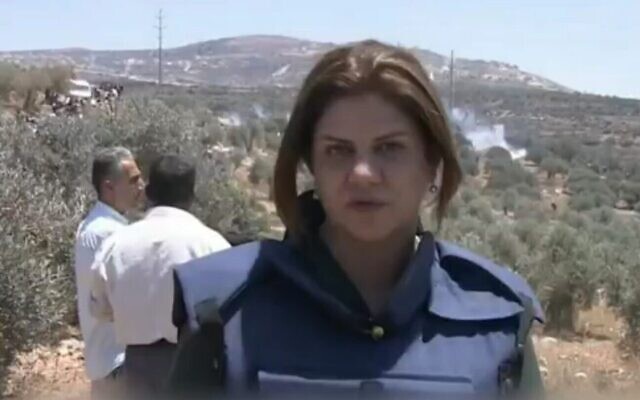
In a TV interview hours after the death of Palestinian-American journalist Shireen Abu Akleh, killed while covering clashes between IDF troops and Palestinian gunmen during an army operation in Jenin, Foreign Minister Yair Lapid rejected the suggestion that Israel had already lost the public relations war over who was to blame.
Indeed, Lapid told Israel’s Channel 12 on Wednesday evening, the Israeli narrative, “that we still don’t know what happened,” had been accepted by the Americans and even in the European arena.
His immediate, publicised — and subsequently rejected — suggestion to the Palestinian Authority to work together on an investigation, said the foreign minister, had also resonated internationally.
Of course, Lapid went on, nothing had helped with the Palestinians, “where we are immediately blamed.” But lessons had been learned, he insisted, from previous contentious incidents in which Israel froze, misled and otherwise failed to quickly disseminate what it credibly believed to have occurred.
Lessons learned? Well, partially.
Defence Minister Benny Gantz’s briefing to the foreign press on Wednesday, in which he stressed Israel’s commitment to “uncover the truth” about how Abu Akleh’s death unfolded, was important.
But the IDF’s spokesman, in an early response to her death, described Abu Akleh and other journalists as “filming and working for a media outlet amidst armed Palestinians. They’re armed with cameras, if you’ll permit me to say so.”
For several hours thereafter, leading Israeli political and military figures declared that it was likely Abu Akleh was killed by Palestinian gunfire, before IDF Chief of Staff Aviv Kohavi, while noting that IDF troops came under “wild, indiscriminate” Palestinian fire, clarified that, at this stage, it was simply “not possible to determine whose gunfire she was hit by, and we are sorry for her death.”

Very little was said by Israeli officials about the specific context for the army operation — the reason the IDF was there in the first place. The army has escalated its activities in the Jenin area in recent weeks to try to prevent more of the stream of recent terror attacks, several of which — including the fatal shootings of three Israelis at a central Tel Aviv bar on April 7, and the axe murders of three more Israelis in Elad last week — were carried out by Palestinians from Jenin and its environs. A point quite important to make, one would think, when trying to explain to a non-expert watching world the death of a journalist caught up in a gunfight.
And that’s without getting to the open question of whether the IDF has more information and material from Wednesday’s deadly clash that it did not see fit to make quickly available — as belatedly proved to be the case, for instance, regarding the deadly Israeli Navy interception of the Gaza-blockade-busting Mavi Marmara in 2010, when the IDF initially chose not to release footage showing naval commandos being attacked when they boarded the vessel.
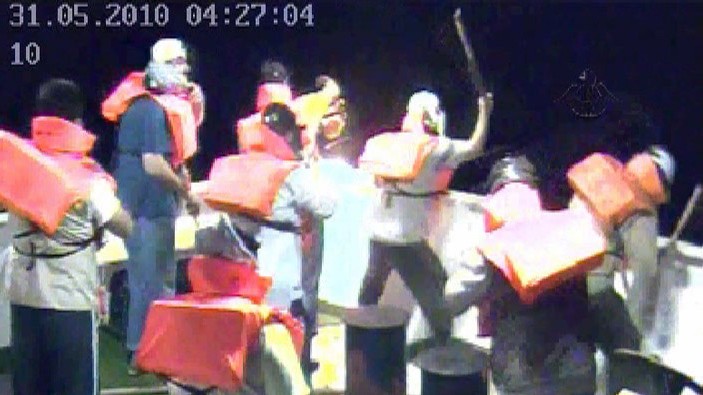
Like several such past incidents to which Lapid alluded, the killing of Shireen Abu Akleh threatens substantive damage to Israel — diplomatically, in the court of international public opinion, and as a driver of more terrorism.
Abu Akleh’s producer, fellow Palestinian journalist Ali Samoudi, who was hospitalised in stable condition after being shot in the back in the same incident, said any suggestion that they were shot by Palestinian gunmen was a “complete lie.” An initial Israeli army probe has reportedly determined that IDF troops did not fire at Abu Akleh. The Palestinian coroners who examined the body and the bullet, meanwhile, were quoted saying that, thus far, it was “not possible” to determine whether she was hit by an Israeli or Palestinian bullet.
Getting to the bottom of what happened — be it exculpatory or problematic — won’t alleviate Palestinian hostility, reverse closed-minded conclusions, or sweep aside mis- and disinformation. But it will make a considerable difference for those — at home, abroad, in governments and among ordinary people — for whom the truth does still have a lasting value.
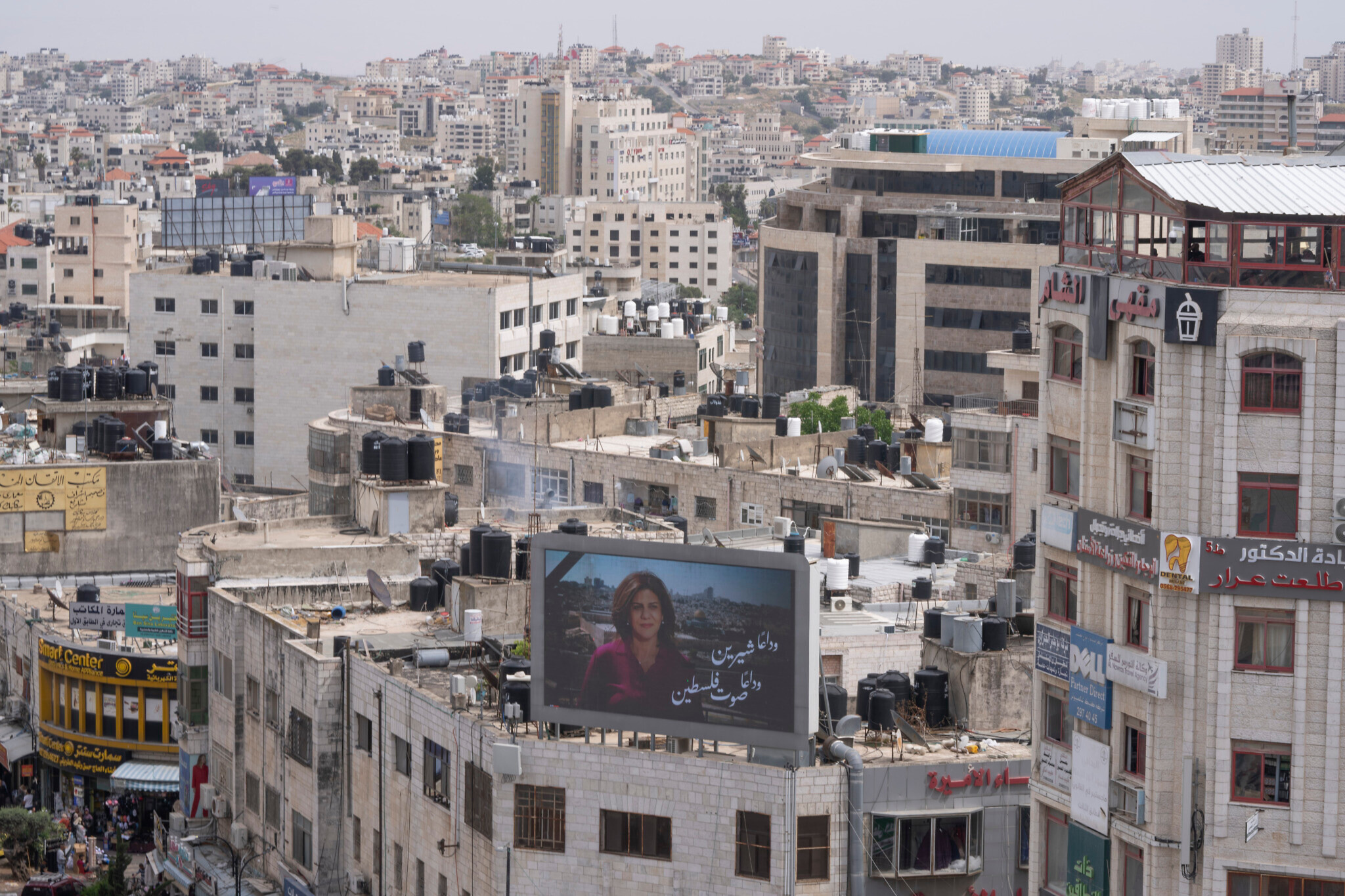
A death affecting more people, more deeply
In the immediate, unshakable Palestinian narrative, as Channel 12’s Palestinian Affairs reporter Ohad Hemo noted, Abu Akleh was not only shot by Israeli troops rather than hit by indiscriminate Palestinian gunfire, but deliberately targeted by Israel in order to silence the voice of the Palestinians.
With both the Palestinian Authority and Hamas definitively blaming Israel — PA President Mahmoud Abbas immediately decided that Abu Akleh was executed by Israel — that misrepresentation can only foster greater hostility to Israel and a more fertile recruiting ground for terrorism and violence.
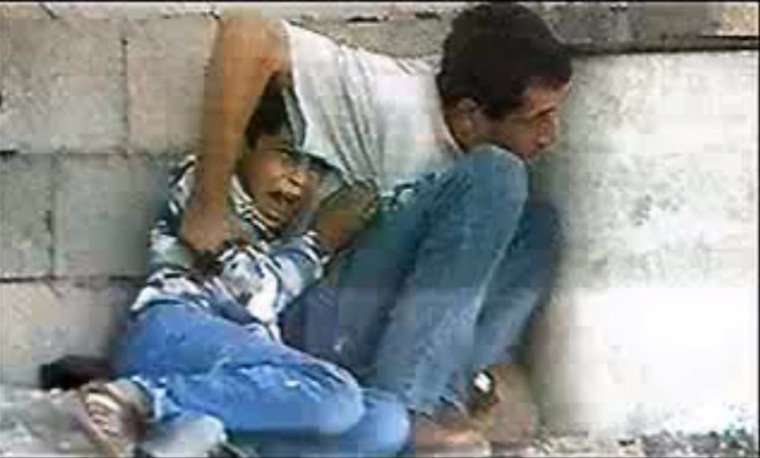
The death of Abu Akleh is potentially more resonant than many of the previous landmark incidents Lapid presumably had in mind, affecting more people, more deeply, than the Mavi Marmara affair or even the death of Palestinian boy Muhammad Al-Dura in Gaza in 2000 — two incidents dismally handled by Israel’s spokespeople and officialdom that resonated for years.
That’s because Shireen Abu Akleh was a veteran reporter trusted by and familiar to tens of millions of Al Jazeera viewers across this region and beyond. She was killed in the course of her journalistic work, while clearly identified as a member of the press. A Jerusalem-born Christian, she also held American citizenship, making the question of responsibility for her death a matter of direct significance for Israel’s most important ally.
Blunt authenticity
The general in charge of the Central Command area that includes Jenin, Yehuda Fuchs, told Channel 12 Wednesday night that “hundreds, even thousands of bullets” were fired by the sides in the gun battle, and “I don’t know which bullet” hit Abu Akleh. “I am sorry for every innocent person who is hurt in the course of IDF operations. We do our best to avoid it…. And I’m sorry about the death of Shireen Abu Akleh.”
He presented himself as the officer who was responsible for the operation — in that “I am the Central Command general. I’m responsible for ensuring that terrorist attacks do not come out of Jenin. I’m responsible for sending combat troops, risking their lives, into Jenin refugee camp to extract people who are planning terror attacks, people who have carried out attacks, and people who are making weaponry to harm Israelis.”
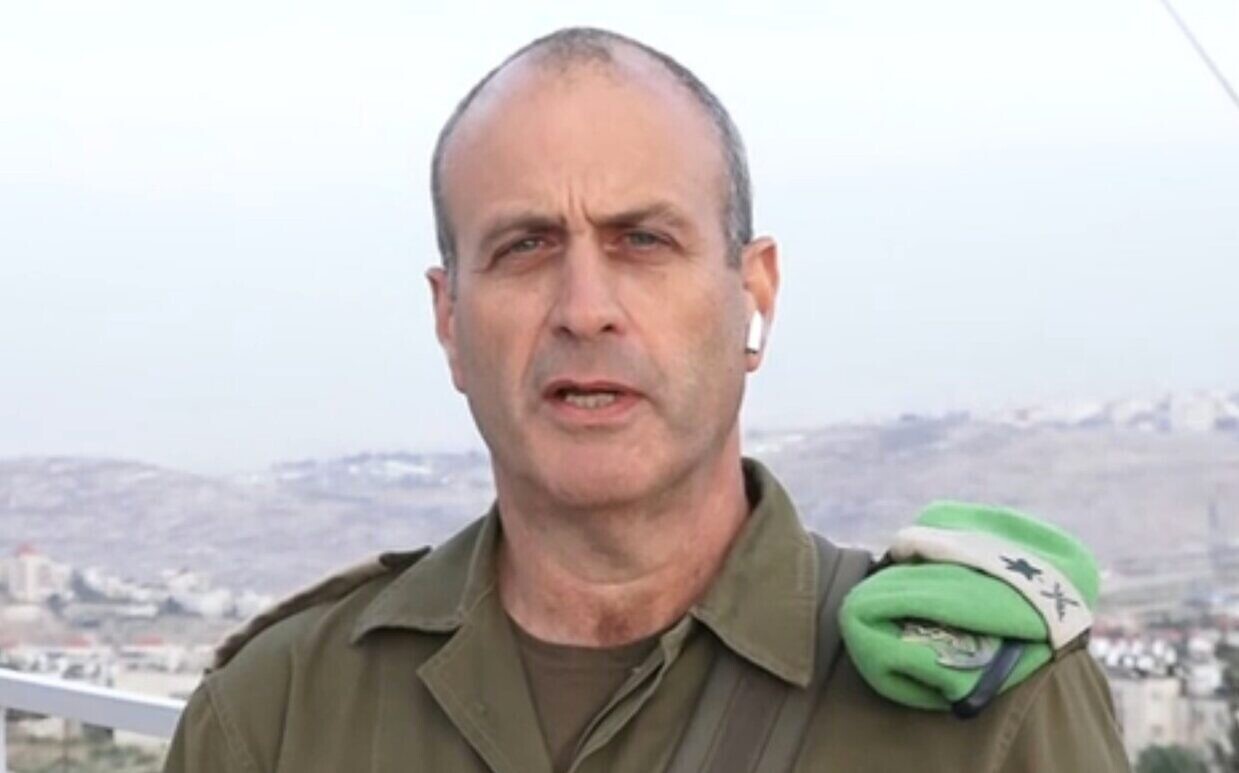
Entering Jenin is always immensely risky, he said, since gunfire erupts from all directions. It’s not simple. It’s an urban area. And it’s dangerous.”
Asked about the concerted Palestinian campaign of blame against Israel, Fuchs was dismissive: “I don’t deal with [propaganda] campaigns. The only campaign I’m engaged in is to protect the state of Israel. In 99 percent of the operations against terror in urban areas, including in Jenin where we are fired on in all directions, we don’t hit innocents. We succeed at that. But sometimes… when you’re fighting in a refugee camp, and dozens of [gunmen] are coming at you and firing from 270 degrees, from almost all directions, sometimes innocent people do get harmed. The journalist Shireen, who was really very close to the line where the forces were — ours and the Palestinian terrorists — was hurt there.”
Fuchs said the IDF had no choice but to continue anti-terror operations, and would continue to do so with caution and professionalism — in contrast to the “wild gunfire” it encounters. “That’s our responsibility to the people of Israel,” he said.
It’s a first rule of public diplomacy that you don’t put grizzled, gruff-talking generals in front of the cameras. Fuchs, with his no-nonsense candour, proved rather an exception. No media-trained spokesman, he came across as straightforward but far from callous — as he spelled out precisely what he understood to have occurred and why.
This was an authentic Israeli narrative — not spin or PR. Delivered, obviously, in Hebrew, and doubtless too forthright anyway for international consumption. But resonant, at least, with the watching Israeli public. Who also, not incidentally, need to understand what’s being done in their name and for their defence.
***
On Thursday, the Palestinian Authority, as Lapid had predicted, declared that “all the evidence confirms” that the IDF killed Shireen Abu Akleh, and refused his offer of cooperation on the investigation and a subsequent appeal by Gantz to give Israel access to the bullet for specialist analysis.
“Those who have nothing to hide do not refuse to cooperate,” Israel’s Army Radio quoted unnamed Israeli officials saying in response.
The fact is that a journalist was killed while trying to do her job. How? Who by? Could it have been prevented? Many of us think we can figure out what transpired, but we don’t actually know.
The sooner we get to the bottom of all this — which the PA claims it has, but hasn’t; and as Israel has properly vowed to do — the better. We’ve had the predictable narratives. Now, we need the truth.
TIMES OF ISRAEL

comments